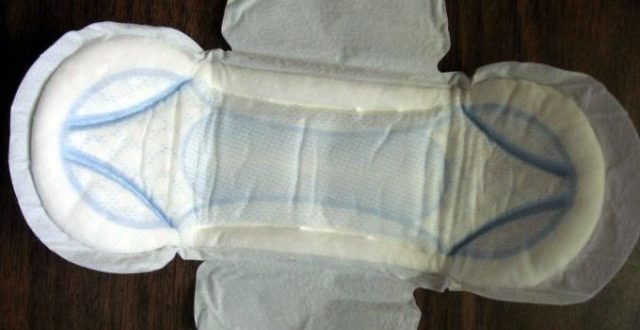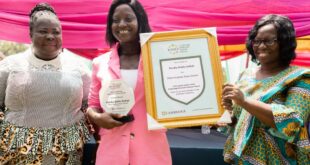Some pupils of Weweso M/A Junior High School (JHS) in Kumasi have revealed they save up portions of money given to them for food to purchase sanitary pads.
The pupils lamented that the expensive cost of the hygienic pads on the market is worsening the discomfort associated with their monthly cycles.
Final-year female pupils of Weweso M/A JHS listened raptly to lessons on menstrual hygiene by a delegation of postgraduate students at the Kwame Nkrumah University of Science and Technology (KNUST).
As hygienically required, women or adolescent girls during their periods should at least change their sanitary pads three times in a day.
But the recent expensive cost of pads only makes room for them to breach the hygiene rules.
“At first, we were buying it at a lower price but now the price has increased. The fact that the price has increased we can’t get enough. For me, per se, I go home before I change my pad.
“But it shouldn’t be that way. It has to be changed regularly. The high cost of pad has really been a stress to the ladies,” one of the pupils, Janelle Nyamekye, said.
Disturbingly, the girls are forced to cut down their expenses at schools.
“Every day, if you have to buy food ¢2, you have to save some so that when it gets to the time for menstruation you can use that money that you saved to buy some,” another pupil, Lawrencia Danquah, revealed.
The headmistress, Priscilla Akohene Mensah, said the situation affects attendance at the school.
“They enter their menstrual period and then do not attend school because of the pad that they use. Sometimes, some of them fail to come to school. Because of the challenge, I always solicit help from other institutions,” she said.
Sales Manager of the northern sector of Sunda Ghana Limited, Thomas Ameah Jr, attributed the expensive cost to the skyrocketing cost of raw materials used for the pads.
“The cost of raw materials are increasing. Most of these raw materials are also imported. As the raw materials increases, obviously the dollar is used to buy the raw materials, cost of pads cannot be left out,” he said.
To ease their discomfort, the Graduate Students’ Association of Ghana-KNUST chapter donated some packs of pads to the schools.
Gender Commissioner, Edith Amponsah, says the increasing number of female students confronted by the challenge necessitated the gesture.
She said: “60% of them are unable to buy pads and use. It’s hygienically correct that they get the sanitary towels and use them properly in order to stay hygienic and study comfortably.”
Unlike urban girls who are fortunate, the situation could be dire for those in rural areas.
Interventions from the Ministry of Gender, Children and Social Protection and, perhaps, reduction in taxes on hygienic pads could help lessen the woes of the Ghanaian girl.
 Home Of Ghana News Ghana News, Entertainment And More
Home Of Ghana News Ghana News, Entertainment And More





